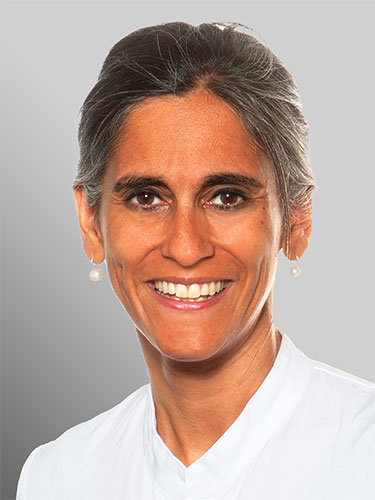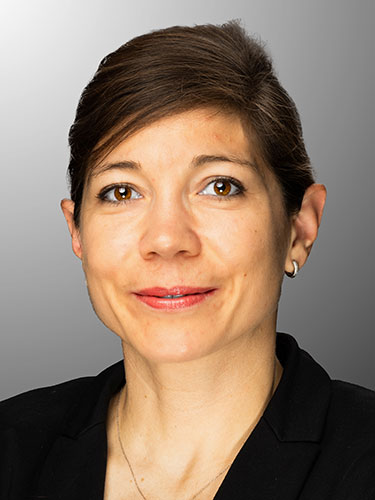Two new professors in the Faculty of Medicine
The University Council has appointed Nina Khanna as Professor of Clinical Infectious Diseases with a research focus on bacterial infections, and Judith Zaugg as Professor of Molecular Medicine.
27 May 2024
Professor Nina Khanna Gremmelmaier has been appointed Clinical Professor of Infectious Diseases with a focus on bacterial infections in the Faculty of Medicine at the University Hospital Basel (USB). Her appointment to the professorship is associated with her new post as Head of Infectious Diseases at the USB. Nina Khanna will take up her position on 1 June 2024 and will lead the clinic together with Professor Sarah Tschudin Sutter.
Nina Khanna is an adjunct professor, as well as a senior physician at the Clinic for Infectious Diseases and Hospital Hygiene at USB, and has been a research group leader in the Department of Biomedicine since 2013. The new professorship was created as part of the establishment of the National Center of Competence in Research (NCCR) AntiResist. Its tasks include coordinating and leading the clinical research component of the NCCR. Nina Khanna has held this role since the NCCR was set up.
The 48-year-old studied human medicine in Fribourg and Basel. Her clinical and scientific training took place at the Cantonal Hospital Baden, the University Hospital Würzburg and the University of Würzburg. She has been a specialist in internal medicine since 2008 and a specialist in infectious diseases since 2010. She completed her habilitation in 2011 and has been an adjunct professor at the University of Basel since 2017. Her research focuses on improving the understanding of difficult-to-treat infections, including antibiotic-resistant infections, and the implementation of new therapeutic strategies such as cellular therapies. Her research work was awarded the Science Prize of the Canton of Basel-Stadt in 2019.
Professorship of Molecular Medicine
The University Council has appointed Judith Zaugg as Professor of Molecular Medicine in the Faculty of Medicine’s Department of Biomedicine (DBM). She will take up the position on 1 September 2024.
The 40-year-old studied chemical biology at ETH Zurich and received her doctorate in computational biology at the University of Cambridge and the European Bioinformatics Institute (EMBL-EBI) in 2011. She then spent two years as a postdoctoral researcher at Stanford University. In 2014, she joined EMBL Heidelberg as a group leader, where she is currently working in the Structural and Computational Biology Unit. Since 2018, she has also led a group in the Molecular Medicine Partnership Unit, a joint venture between EMBL and Heidelberg University Hospital.
Zaugg researches how cells integrate genetic and epigenetic information with signals from their microenvironment, and how these different levels of information contribute to disease phenotypes. In particular, her research group specializes in translational hematological research in the field of acute myeloid leukemia and blood stem cell aging. Her main interest is the interaction of stem cells, the niche and the immune cells in the bone marrow.
Promotion of Professor Dennis Gillingham
The University Council Professor Dennis Gillingham was promoted to full professor on 1 August 2024. Dennis Gillingham has been Associate Professor of Organic Chemistry in the Department of Chemistry of the Faculty of Science since 2016. Gillingham’s research focuses on the use of DNA to store chemical information and on the way small molecules can block protein functions.
Three adjunct professorships
The University Council has approved the decision made previously by the Senate to appoint two adjunct professors in the Faculty of Medicine:
- Professor Lars Hemkens for Clinical Epidemiology
- Professor Patricia Hirt-Minkowski for Nephrology
- Professor Matthias Matter for Pathology



